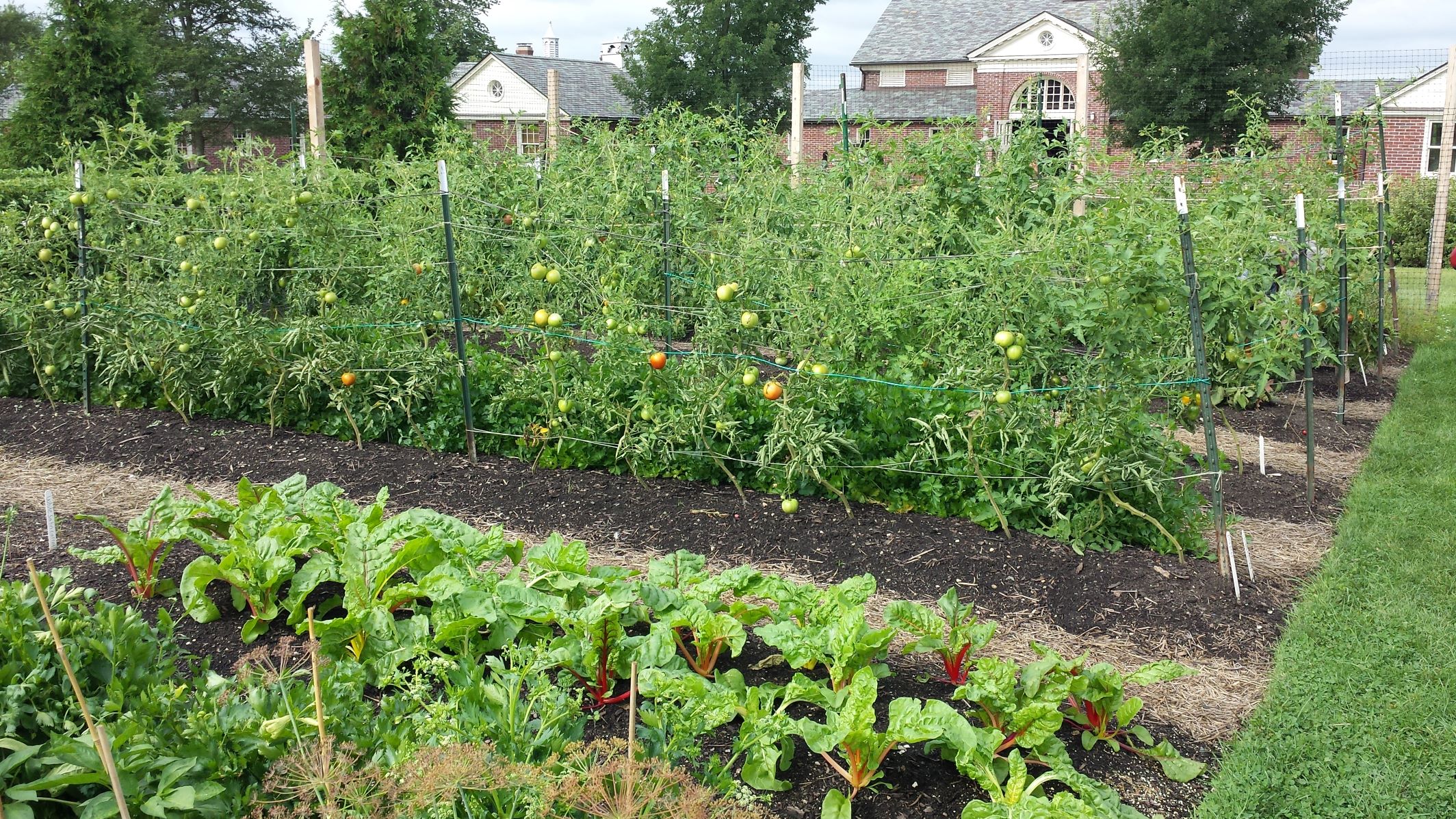Placing a Vegetable Garden
by Anthony Reardon, horticulture agent
For many people, whether first-time homeowners or those just venturing into the world of plant care, 2024 will be the first year they have tried to grow a vegetable garden. They’ve seen their neighbors do it, they’ve witnessed the numerous benefits that accompany fresh food produced right next to your doorstep, and they want in on the fun. And so, this may leave many asking, “Where do I start?”

The first step to establishing a vegetable garden is choosing its location. While this seems simple, there are a few key components to consider. The primary care factors for plant growth success are light availability, correct water supplementation, soil nutrient availability, and environmental exposure.
All vegetables, even cool-season varieties, prefer full sunlight for proper photosynthesis and crop development. This means the vegetable garden must be in a spot receiving 6+ hours of direct sunlight daily. Accounting for tree cover and structural shade, morning-into-afternoon light, followed by minor shade, will be more beneficial to the plants than morning shade, followed by harsh afternoon light and heat.
Ideally, the garden location will also be in an area of level ground. This will help ensure even moisture throughout the garden as water will not be inclined to fall in one direction –towards some plants and away from others. Determining the composition of a designated garden area’s soil will then give you a good indication as to how often it will need to be watered.
If the ground is sandy or full of pebbles and rocks, water will filtrate through this soil profile much more quickly than a clay composition with densely compacted particles. Ideally, this information can also be utilized to incorporate organic matter.
Worked into the soil, organic matter dually acts as a sponge for moisture in porous, sandy situations and a sieve for moisture in dense clay situations. Ultimately, this evens out the playing field to the moist-but-not-overly-saturated soil conditions that should be strived for to attain the best vegetable growth. The humus accompanying organic matter will also assist the soil in making its essential nutrients available to the plants.
Nitrogen, phosphorous, and potassium are the macronutrients required for all plant growth, and their availability in the soil will be limited by both their physical presence in the location and the pH of the soil that may be “tying” them up, making them unavailable to plants. The best way to know how to amend these components is by conducting a soil test through your local Extension office.
Aside from soil, water, and light, exposure is another primary factor that impedes success in a vegetable garden (aside from insects and disease). Aim to have your garden somewhere free of intense wind or humidity. Appropriately placed and protected, your veggies will thank you.

